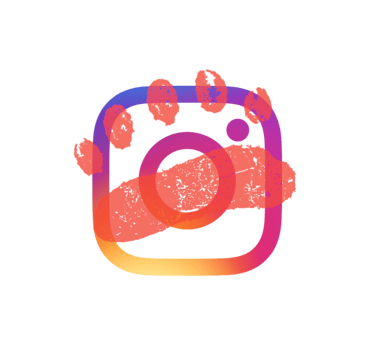Checking in with Micah Dawanyi
Follow-up interview with Micah Dawanyi
10/7/2024
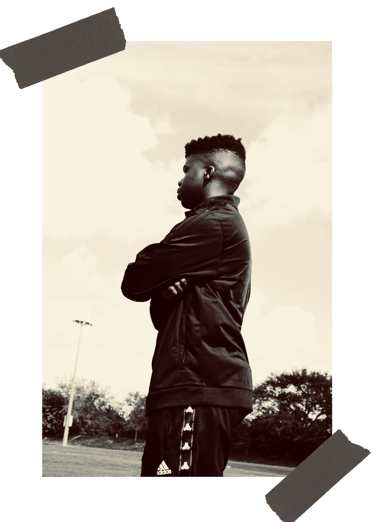

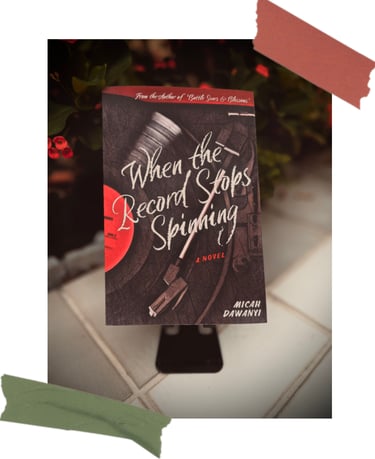

Last year, I had the pleasure of interviewing Micah Dawayni for the first time. He had such thoughtful and honest answers that when I was offered the opportunity to interview him again, I jumped on it.
If you've been following Micah's career, you know he is a published author, artist, and public speaker. If you haven't- what are you waiting for? Give our last interview a read and show Micah some love!
You've published three books all while going to school. How difficult was juggling the heavy workload of college classes and writing? Are there any tips that you discovered that made it easier?
Honestly, juggling the workload didn’t come as difficult as one would think. When I was working on each of my three books, I completely fell into them. That’s the beautiful thing about storytelling. You develop such an intimate relationship with your art, and it can feel like you’re stepping into alternate dimensions. I was working hard, but it didn’t feel that way because I became completely swept up in the worlds I was building. I was thrilled just to be creating.
There was one “mental shift” that helped, though. When I was in class, I would think about how my education could lend a hand in my writing. I completed a dual-studies program in health science and psychology at the undergrad level, and studied communication and digital media for my master’s. Both degrees had/have direct applications to my storytelling efforts… so instead of thinking about school and writing as contrasting dualities, I thought about how they could blend together.
Micah Dawanyi is the author of Step into my Shoes: Memoirs from the Other Side of America, Battle Scars & Blossoms: A Journey Through the Mind and When the Record Stops Spinning.
Want to be featured? Know someone who should be featured? Let me know!
You've recently been to California and New Hampshire which you said inspired you so much that you set your most recent book, When the Record Stops Spinning in Southern California. What was it about your travels that inspired you?
Well, it’s all tied to the process of developing my latest story. I used my own version of storyboard panels when I was designing the chapters for When the Record Stops Spinning. So when I traveled, seeing practical locations gave me ideas for scenes in the story.
Even deeper than that, sometimes it was the emotional atmospheres of different locations that inspired me. When I first got to Southern California and saw the mountains, I was filled with such a profound sense of serenity… and I felt motivated to write something captivating. There were several moments like that, in both California and New Hampshire.
Education is clearly important in your life. Do you think you'd be the same writer if you hadn't gone to college? What advice would you give someone undecided on whether higher education is for them?
Definitely not. In our last interview, I spoke about being a writer for my high school’s yearbook program, but I had no aspirations to continue writing. My first book was completely inspired by my experiences as a freshman in college, and I had many great professors who supported me. Without those factors, I probably wouldn’t have become an author at all.
Regarding advice for people considering higher education, I would say to take a non-linear approach to thinking about the decision. College is often discussed in the context of instant gratification, i.e., what your life will look like as soon as you finish. Most people are in a rush to have their lives figured out, so it’s easy to take a black-and-white approach to thinking about college. I think it’s better to engage in that decision-making process with a holistic approach. Yes, consider financial security, but also consider the benefits of education in other areas of your life and in the stages of your life beyond your 20s and 30s.
When the Record Stops Spinning is a science fiction adventure novel that gives the main character, Kairo, the ability to travel back in time using the creative power of music. I love this idea! We've all experienced that moment when a song comes on and suddenly it's like we're listening to it for the first time. How did you decide to take that feeling and turn it into a literal means of time travel?
I really wanted to write a story about music for quite some time. There’s something spiritual or psychological about our connections to melodies and sounds… I’ve always recognized that. Initially, I was searching for a story where I could simply share my appreciation for the way music has impacted my life. But that was too broad of a sentiment, which led to incomplete ideas. I considered a few battle-of-the-bands stories but realized I was more interested in the power of music, which led to the story’s final concept. Of course, the novel is sci-fi, but it’s not unrealistic to think about a world where people could manipulate time using their personal connections to music. We already do it (on a smaller scale) with those brief mental flashbacks when the right song comes on, so I started to see the possibilities immediately.
What are some songs that always take you back?
I could give an entire interview just based on this question, but I’ll keep my answers brief! Rocketeer by the Far East Movement, Do You Remember by Jay Sean, and Firework by Katy Perry always take me back to elementary school. I remember hearing those songs on the radio in the morning when my mom would take me to school, and at lunch, we’d have these American Idol competitions where students would usually sing one of those songs. They honestly just remind me of the simpler times in my life, but also that specific late-2000s time period.
Going back a little bit further, I’d say One by U2 and Mary J. Blige. That song was used as part of the promotion for the 2006 World Cup, which was around the time I fell in love with soccer. I can literally see myself watching the World Cup final on the couch with my dad, watching the teams enter the stadium as that song played.
As someone who has been creating in one form or another most of my life, I can certainly empathize with Kairo's devastation over the loss of being able to create. As someone who expresses themselves using art, writing, and public speaking, which would you be most saddened to lose?
Writing represents the beginning of my artistic journey, so it’d have to be writing. I got into art and illustrations because they helped me become a better writer, and public speaking opportunities also followed after I published my first book. When I think about that, it’s clear that writing is not only the catalyst for everything else, but also the glue.
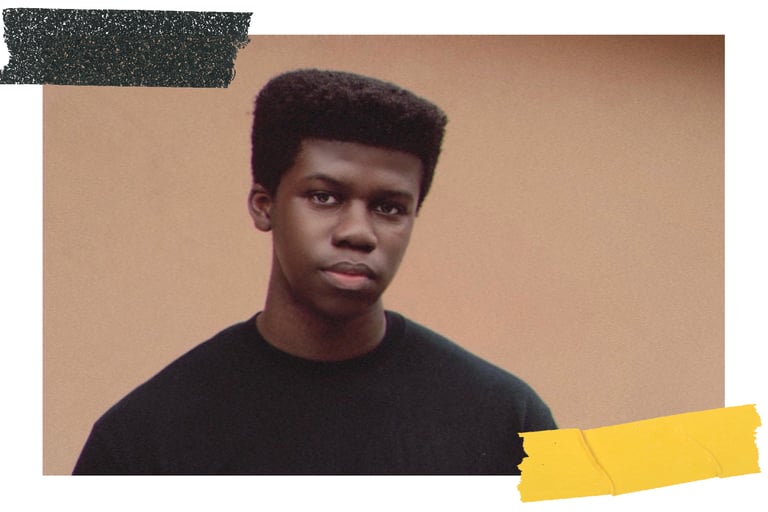

What a great interview! I'm so excited to see what Micah does next.
I may be a little biased, but I'm especially interested to see how he breaks into the TV/film industry. What are you hoping to see him accomplish next? Did you have a favorite part of the interview? Let us know!
Photos courtesy of Micah
At 328 pages this book is your longest one yet, was there anything you loved that ended up being cut to keep the flow of the book going? Is there a part you’re secretly most proud of?
Yes! There was a scene at the beginning of the third act that was cut because it slowed the story down drastically. I paced this novel kind of like a film, and the scene I cut was more suited for an amusing filler episode of a TV show, if that makes sense.
As for what I’m most proud of, it’s probably the complexity of the story. I referenced Spider-Man early on when speaking to my editor about intentionality. As cool as Spider-Man is, nobody would want a movie where he swung around for 2 hours straight. The complexities of Peter Parker’s world, in addition to his superpowers, make for a complete story. As for my novel, before I even landed on using music as a sci-fi element, I’d already done the groundwork for not only Kairo, but also Sahara, the other lead. Their journeys were already mapped out, and the sci-fi themes simply supported their arcs. I wanted to avoid a situation where one plot element carried the entire story… that wouldn’t have been engaging. Thankfully, Kairo and Sahara’s journeys are far, far more complex than that.
If one character from any of your books could come to life, who would you want it to be and why?
Probably Sahara from When the Record Stops Spinning. She’s the science prodigy who figures out how to generate direct access to the past using music. I can only imagine how much she’d shake up the real world; I’d love to see it.
I love that each of your books has some form of accompanying media. The podcast with your first book and the playlist with your second book. Do you have plans to release something special alongside When the Record Stops Spinning?
Thank you! I do have some special plans, yes. Because the book is about music, it’s only right to release a new music compilation that follows the themes in the story. I also plan to host a series of interactive listening parties where readers will be able to follow along with the music and engage in discussions about how each song represents a different part of the book. I’ve really enjoyed the “book playlist” concept so this is just a way to take it to another level.
Update: You can listen to the soundtrack here.
In our last interview you spoke of the importance of giving the audience transparency and being authentic, do you find this difficult at times? Are there days you don't feel like being open and vulnerable? If so, how do you decide what to share vs keep private?
Well, it depends on what we define as transparency and authenticity. Simply by being an artist, I am choosing to share a piece of my soul with the world. That in itself is transparent. That in itself is vulnerable, but beautiful too. So there’s no pressure to disclose a bunch of sensitive information or anything like that. I’d like to think that people can feel my spirit in the way I communicate through my work, anyway.
The only days when I don’t feel like being open are when my loved ones are involved. That’s one of the reasons why I stopped writing non-fiction memoirs, because my stories started becoming too personal- at the risk of compromising the privacy of others. I’m not willing to cross that line for no good reason.
Both Battle Scars & Blossoms as well as When the Record Stops Spinning cover themes of loss. In Battle Scars & Blossoms, it was the literal loss of life. While When the Record Stops Spinning focuses on the loss of identity. What continually draws you to explore this theme?
My own life experiences. I was processing my feelings around literal, tangible grief when I was writing Battle Scars & Blossoms. My grandmother, who helped raise me, had just passed when I started working on the story. It was weird because it felt more like she was far away on a vacation, rather than actually gone. That being said, it was only natural to gravitate towards grief as it represented my own emotional journey.
When I was writing When the Record Stops Spinning, I was thinking about having to quit soccer due to medical complications back in 2016. A version of myself died when I let go of soccer, which was necessary to become the artist I am today, but still produced some interesting reflections that attached themselves to my work.
Whether it's discussing mental health and its stigmas or tackling racial injustice, each of your books covers important societal issues. How do you believe storytelling can influence societal change?
I believe storytelling can be used to educate, enlighten, and empower. That is what I have always focused on, and the possibilities for change are endless. You can offer fresh perspectives and bring light to issues; you can motivate and inspire people to take action… you can even combat misinformation and document history through stories. It’s important to recognize that power and look at the responsibilities of being a storyteller as a privilege.
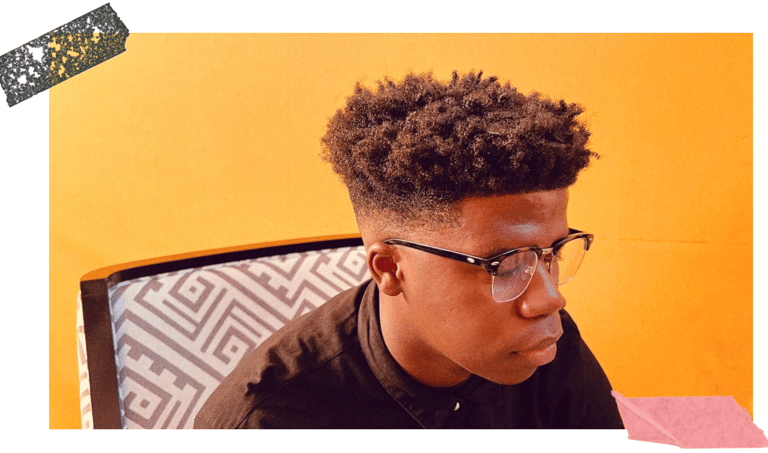

Beyond dealing with the theme of loss, When the Record Stops Spinning also focuses on themes such as purpose and redemption. Do you think redemption is a topic that needs more exploration in today's entertainment?
Absolutely. Despair and disaster are flowing in abundance right now. It’s only natural with all of the craziness in the world, but messages about hope and redemption are needed most in times of darkness. I also think, in some industries, there is this tendency to give half-baked messages of positivity. But simply telling people to “believe and everything will work out” is not always enough. Storytelling offers the perfect landscape to depict failure and demise; accounting for all the nuances that can arise in our journeys. And in doing that, stories can still offer hope. I mean, I for one believe that anguish and courage can co-exist together… but we don’t always hear that.
You recently released an updated extended version of Battle Scars & Blossoms. What additions are you most excited to have included in this new edition?
Working on the 2nd edition of Battle Scars & Blossoms was an interesting process. I wanted to preserve the artistic integrity of who I was in 2021, when I was working on the first edition. For that reason, there are no major changes. There are small, technical details that were added to create a more immersive reading experience… but a few scenes were extended to dive further into the mind of Noel, the protagonist of the story. He narrates in a conversational tone and breaks the fourth wall from time to time, which creates intimacy with the audience. Those extended scenes allow readers to understand him on an even deeper level than before.
Have you thought about releasing your books as audiobooks with you as the reader as a way to dip your toe in the world of voice acting?
I have! I just need the time and bandwidth to commit to something like that. Thankfully my team is starting to expand, so with more help, I’ll be able to tackle even more creative projects. I’m sure I’ll tap into a new side of artistry when I start using my voice as an instrument, so I’m excited about the future!
Now that you've finished school what are you most excited to focus your attention on?
I’m most looking forward to expanding the mediums I use for storytelling. As part of my master’s program, I had to write a few commercials for apparel companies, so I’ve gotten into scriptwriting and developing shot lists for stories. People will see more kinds of multimedia from me in the future.
I also want to focus more on public speaking. My first book was released at the height of the pandemic, so my speaking opportunities were mainly virtual. But with my second book, I got to witness how special it is to connect with audiences in person. I plan to continue developing that side of my brand by reaching new audiences.
What are the best ways for readers interact with you? Are there social media accounts you're more active on?
I’m most active on Instagram @micahdawanyi, and my digital portfolio/landing page can be found at linktree.com/micahdawanyi. The webpage also has my email and LinkedIn profile, if anyone wishes to contact me there!
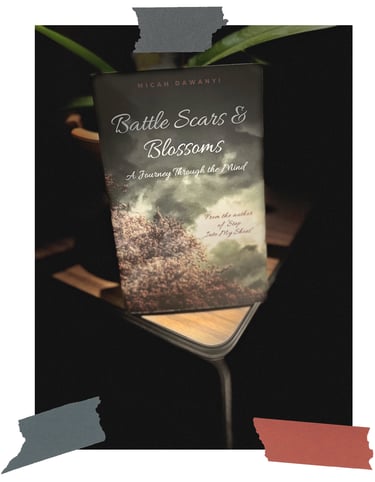

Don't Miss Out On Any Interviews
Subscribe to get notified whenever there's a new post or something exciting happening.
